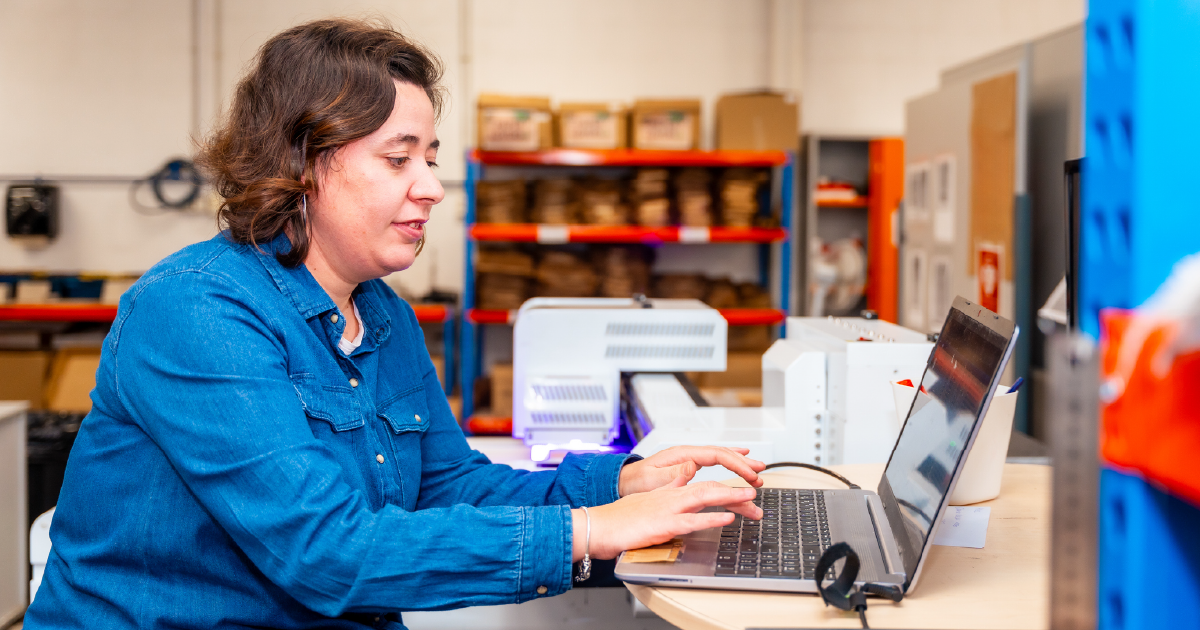In today’s world, purpose can no longer be a static statement on a wall or a quarterly report. It must be embedded in the systems, workflows and decisions that shape how we work and how we show up for each other and our communities.
As Chief AI Officer at Benevity, I believe that responsible AI, when applied thoughtfully, has the power to unlock this potential. And that’s exactly why we’re actively evolving our platform and our philosophy around AI.
AI as a core enabler for purpose-driven programs
At Benevity, we don’t see AI as just another feature set. We see it as a core enabler of our mission to help the world’s most influential companies become engines of social impact.
Our approach to AI in CSR software is simple: help clients realize purpose with the same sophistication and scale they use to run the rest of their business. Doing that requires rethinking how impact work gets done, typically by lean teams with big ambitions and increasing demands from their stakeholders.
This evolution of AI in CSR platforms represents a shift from a system of record to a system of action. A system of record simply logs data and activity, relying on siloed, traditional record-keeping tools. A system of action goes further. It is a holistic platform that uses AI agents and integrated data and capabilities to mobilize people, connect them to purpose, and turn data into outcomes. This industry-leading approach levels up our human understanding and sets the foundation to help guide CSR teams to act with confidence and accelerate impact.
Powered by AI, our Enterprise Impact Platform acts as a true partner: one that augments, supports and anticipates. It guides impact and foundation leaders to mobilize the right people at the right time, automate storytelling, match grants faster and forecast campaign outcomes; all while reducing the lift on lean teams. This is agentic AI, working behind the scenes to amplify your impact, connect your people to purpose, and turn data into action. In the best CSR software AI Agents will anticipate needs, facilitate workflows, and empower people to focus on the CSR program work that matters most.
The work that ESG and CSR software does today to document activity, facilitate employee activity, and report on program goals is important, and yet only tells part of the story. When powered by responsible AI, the system can help teams reduce the burden of manual reviews, surface insights they may not have time to chase down, and give them additional confidence in decisions backed by data. It reduces the lift on teams while amplifying their impact, connecting people to purpose, and turning information into action.
This is what we mean by a system of action: a CSR platform that doesn’t just reflect what’s already happened but shapes what comes next.
AI that works like a CSR teammate
What makes our approach different is that AI in our Enterprise Impact Platform is not about bots for the sake of buzz. It’s about intelligent agents that guide with context, empathy, and relevance.
We believe that AI supports human intelligence and ingenuity to create impact and purpose at work.
We are working to create a world where:
- A grant program administrator can start within a granting platform to tap into a curated shortlist of nonprofit grant applications, complete with AI-generated summaries, renewal recommendations, and predicted impact outcomes. Instead of sifting through dozens of applications line-by-line, grantmakers can move quickly to making the bigger, more important decisions, like which partnerships align with their organization’s strategy, values and long-term outcomes.
- A retail team lead can be nudged in Slack or Teams with a volunteering opportunity aligned to their team’s interests, complete with a ready-to-launch campaign kit. Rather than spending hours building a CSR program from scratch, they can engage employees in the flow of work, making that engagement feel seamless.
- A foundation president reviewing a new $5M equity grant portfolio can start with AI-ranked options already layered with employee alignment data and community sentiment insights. Instead of asking analysts for weeks of additional research, they can focus on decisions that balance financial stewardship with social equity.
These are just some of the inspirations where we see AI acting more like a teammate than a tool. It’s helping people focus on judgment, creativity and connection. AI does the background work. Humans bring the values, relationships, and ingenuity. Together, they can drive greater impact.
State of Corporate Purpose 2025: CSR Trends and AI Adoption
The 2025 Benevity Impact Labs State of Corporate Purpose Report, underscores why this evolution is so timely. The data show that more than half of companies expect grant budgets to rise this year. That increase means more grant funds and potentially more grants under management by grant program administrators. Those grantmakers are already leaning into AI. The report showed that many teams are already experimenting with AI:
The message is clear: the appetite for responsible AI-enabled impact is real, and the need is urgent. Companies want CSR tools that deliver efficiency, deepen engagement and make impact measurable and visible. Nonprofits want corporate partners to share their advantages. Employees want purpose to be as accessible as their email or chat.
The three tenets of the Benevity initial approach toward AI
To respond to the dynamic nature of AI, we know we have to remain agile, adaptive, and learn from the best. We are orienting our AI strategy around three guiding tenets: Efficiency, Engagement and Impact.
These tenets support an AI approach that is practical and dynamic as we learn more. They translate directly into time saved, employees engaged, and stories told, anchoring Benevity’s role as both a technology partner and a catalyst for purpose.
Building responsible AI into the Benevity DNA
This shift isn’t limited to the Benevity platform. It is organization-wide. We’ve made deliberate investments to ensure AI at Benevity is grounded in ethics, transparency and readiness:
- We hired me as the industry’s first Chief AI Officer, reporting into the C-suite, with a mandate to lead the Benevity Responsible AI Charter.
- We have invested in dedicated AI and data science teams, embedded across product, engineering and strategy.
- We are building an enterprise-grade AI platform for compliance, security and trust, grounded in 17 years of impact data across 900+ companies, $30B in donations and grants facilitated and 8.5M changemakers engaged.
And we are applying responsible AI to how we work internally, improving productivity, simplifying systems and scaling excellence across the Benevity global teams. As it helps our own people move faster and work smarter, it will do the same for our clients.
The future of AI in corporate purpose and grantmaking programs
This shift is bigger than us. Custom web applications are giving way to AI agents embedded into everyday tools like Slack, Microsoft Teams, and Google Workspace. Purpose won’t be something you log into separately; it will surface in the flow of work.
Our job is to embed Benevity capabilities into those agentic interaction points so people can act on their values where they already are. When purpose is so integrated — woven into the daily decisions, nudges and workflows that shape peoples’ jobs — it stops being an extra task and becomes how corporate purpose and grantmaking work gets done. That’s the future we’re building toward. That is purpose at work.
Embedding AI into the Benevity CSR platform for scalable social impact
Over the coming months, we’ll share more examples of how Benevity is bringing responsible AI into our Enterprise Impact Platform, including:
- Predictive models that reshape campaign planning and reporting.
- Storytelling agents that generate content your brand team can refine and amplify.
- AI that helps nonprofits connect to the right corporate partners faster and more effectively.
We’ll continue to bring the Benevity community of clients, nonprofit partners and innovators into this journey to challenge us, co-create with us and help define what responsible innovation should look like in the CSR industry.
The future of purpose at work will be guided and amplified by AI. Yet, enterprise impact will always be realized and elevated by human connection and meaning.









